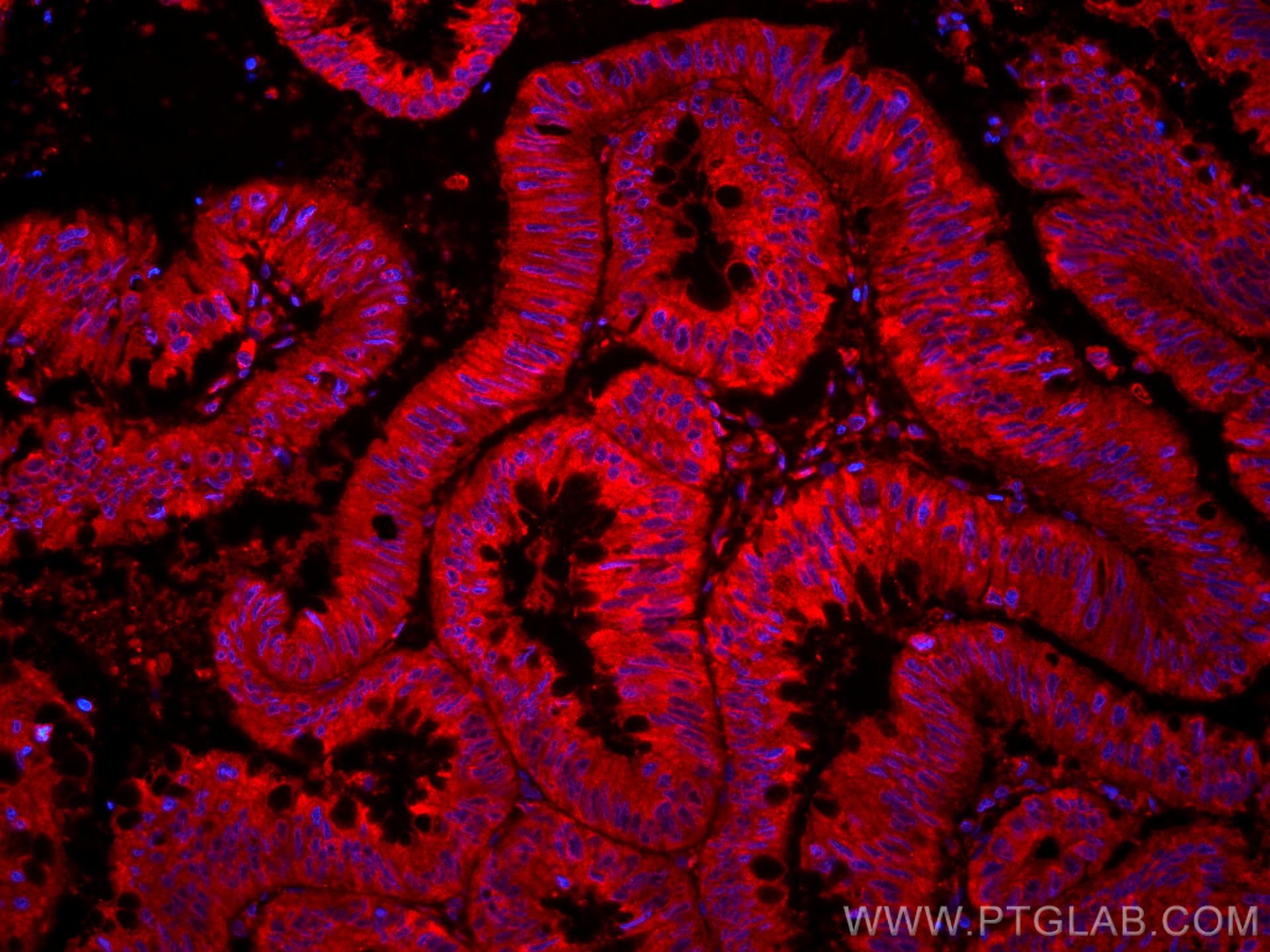CoraLite®594-conjugated ST6GALNAC6 Monoclonal antibody
ST6GALNAC6 Monoclonal Antibody for IF
Host / Isotype
Mouse / IgG1
Reactivity
human, mouse
Applications
IF
Conjugate
CoraLite®594 Fluorescent Dye
CloneNo.
1A7B7
Cat no : CL594-66209
Synonyms
Validation Data Gallery
Tested Applications
| Positive IF detected in | human colon cancer tissue |
Recommended dilution
| Application | Dilution |
|---|---|
| Immunofluorescence (IF) | IF : 1:50-1:500 |
| It is recommended that this reagent should be titrated in each testing system to obtain optimal results. | |
| Sample-dependent, Check data in validation data gallery. | |
Product Information
CL594-66209 targets ST6GALNAC6 in IF applications and shows reactivity with human, mouse samples.
| Tested Reactivity | human, mouse |
| Host / Isotype | Mouse / IgG1 |
| Class | Monoclonal |
| Type | Antibody |
| Immunogen | ST6GALNAC6 fusion protein Ag8358 |
| Full Name | ST6 (alpha-N-acetyl-neuraminyl-2,3-beta-galactosyl-1,3)-N-acetylgalactosaminide alpha-2,6-sialyltransferase 6 |
| Calculated Molecular Weight | 333aa,38 kDa; 374aa,41 kDa |
| Observed Molecular Weight | 38-42 kDa |
| GenBank Accession Number | BC007802 |
| Gene Symbol | ST6GALNAC6 |
| Gene ID (NCBI) | 30815 |
| RRID | AB_2919965 |
| Conjugate | CoraLite®594 Fluorescent Dye |
| Excitation/Emission Maxima Wavelengths | 588 nm / 604 nm |
| Form | Liquid |
| Purification Method | Protein G purification |
| Storage Buffer | PBS with 50% Glycerol, 0.05% Proclin300, 0.5% BSA, pH 7.3. |
| Storage Conditions | Store at -20°C. Avoid exposure to light. Aliquoting is unnecessary for -20oC storage. 20ul sizes contain 0.1% BSA. |
Background Information
ST6GALNAC6 is a sialyltransferase which is responsible for the synthesis of all a-series gangliosides. It has a broad expression pattern. ST6GALNAC6 was reported to be a key enzyme in the synthesis of disialyl monosialyl Lewis (Lea), a representative tumor-associated antigen in cancers of the pancreas and colon.
Protocols
| Product Specific Protocols | |
|---|---|
| IF protocol for CL594 ST6GALNAC6 antibody CL594-66209 | Download protocol |
| Standard Protocols | |
|---|---|
| Click here to view our Standard Protocols |


